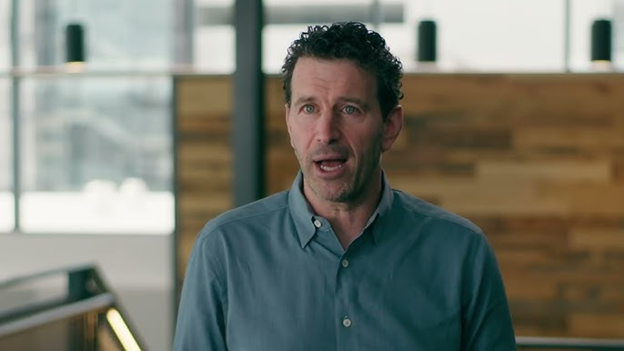Why should you play your own "Devil's Advocate"?
| From the desk of Miles Everson: Happy midweek! I hope you’re all doing and feeling well. Today, I’m excited to share with you an important investment tip from my friend and colleague, Professor Joel Litman. He couldn’t stress this enough, and that’s why I’m also sharing this with you. |
Ready?
Keep reading the article below.
Why should you play your own "Devil's Advocate"?
It’s a common mistake to assume that someone else has done all the necessary research.
Many investors rely on financial news outlets for crucial information, trusting that the insights provided are well-researched and accurate.
However, the reality is that financial narratives often become echo chambers, where opinions are presented as facts.
When this happens, misinformation can spread rapidly, especially in times of market volatility.

This phenomenon was particularly evident during the market plunge in early August 2024. Investors turned to major financial media outlets in search of an explanation for the downturn.
Within hours, a dominant narrative emerged: The yen carry trade was to blame.
The consensus among news sources was that a reversal in this investment strategy—originating in Japan—had triggered the sell-off.
If this assertion were true, the volatility would have presented a prime buying opportunity, as it had no direct correlation with U.S. stocks.
However, this was not the case. As Professor Joel Litman , Chairman and CEO of Valens Research and Chief Investment Officer of Altimetry Financial Research, the yen carry trade was merely a symptom of the market downturn, not its root cause.
The real driver of the sell-off was a string of weak economic data reports at the end of July 2024. Investors who blindly followed the media’s interpretation risked making poorly informed decisions, potentially losing significant capital in the process.
This highlighted a critical issue in financial analysis: The need to discern fact from opinion.
When media narratives solidify too quickly, they often lack the depth of rigorous analysis required to understand complex market movements. Investors who relied solely on these reports found themselves exposed to unnecessary risks.
By the time they realized the yen carry trade explanation was flawed, they have already overcommitted to the wrong positions.
In fact, Howard Marks, co-chairman of Oaktree Capital Management, underscored this danger in a July 2024 memo.
Marks is widely respected in the investment world—Warren Buffett himself has credited Marks with consistently offering valuable insights.
In his memo, Marks outlined numerous instances over the past decade where so-called “expert” consensus proved to be disastrously incorrect.
One striking example was the 2016 U.S. presidential election…
Pundits were certain Donald Trump would lose, and they predicted that a Trump victory would lead to a stock market crash.
Instead, markets surged, initiating one of the longest monthly winning streaks in history. Investors had underestimated the market’s enthusiasm for lower taxes and deregulation.
Marks also referenced economist John Kenneth Galbraith’s famous quote:
“There are two kinds of forecasters: Those who don’t know, and those who don’t know they don’t know.”
The lesson is clear here— no one can predict the markets with absolute certainty. The best investors understand this reality and seek out diverse perspectives before making decisions.
Becoming Your Own “Devil’s Advocate”
Professor Litman echoes this sentiment, emphasizing the importance of challenging one’s own beliefs.
Why?
It’s because great investors actively seek disconfirming evidence rather than reinforcing their existing biases.
Many hedge funds institutionalize this practice by assigning analysts to play “devil’s advocate” against investment theses.
This process isn’t designed to create extra work—it’s a crucial step in ensuring sound decision-making.
For individual investors, adopting this approach can lead to significantly better investment choices.
By scrutinizing all available information and attempting to disprove your own hypotheses, you can better determine whether a prevailing market narrative is based on fact or mere speculation.
If your investment thesis withstands rigorous questioning, it is likely to be well-founded. If it does not, you avoid costly mistakes.
Still a win-win, right?
—
In a financial world where information moves at lightning speed, the ability to critically analyze data and separate fact from opinion is more valuable than ever.
Professor Litman’s insights serve as a powerful reminder for all of us that true expertise lies NOT in blindly following consensus but in the relentless pursuit of truth.
Hope you’ve found this week’s insights interesting and helpful.
| EXCITING NEWS AHEAD The world of work has shifted, and there’s no going back. The barriers to entry have never been lower for talented professionals to work independently, and today’s massive external workforce is hardly a pandemic-produced fad. Business owners can only survive in the new work landscape by partnering with this deep talent pool. With decades of experience in both small-business entrepreneurship and executive management at PwC, I truly believe that the future of work is independent. With that, I’m happy to share with you that my book, co-authored with Walter Scott Lamb, is now available on Amazon! Free Birds Revolution: The Future of Work & The Independent Mind This new bestseller is an essential read for both independent professionals and corporate executives. Here, we provide educational and practical guides to unpack the ever-growing workforce and offer you crucial ways to become a client of choice. Click on the link above to order your copy. Let this bestselling book help you future-proof your career and organization in the new world of work. |
Stay tuned for next Wednesday’s The Independent Investor!
Experts and industry observers are expecting a seismic shift in AI spending and technological advancement.
Learn more about why AI supremacy will dictate the balance of power in next week’s article!

Miles Everson
CEO of MBO Partners and former Global Advisory and Consulting CEO at PwC, Everson has worked with many of the world's largest and most prominent organizations, specializing in executive management. He helps companies balance growth, reduce risk, maximize return, and excel in strategic business priorities.
He is a sought-after public speaker and contributor and has been a case study for success from Harvard Business School.
Everson is a Certified Public Accountant, a member of the American Institute of Certified Public Accountants and Minnesota Society of Certified Public Accountants. He graduated from St. Cloud State University with a B.S. in Accounting.


